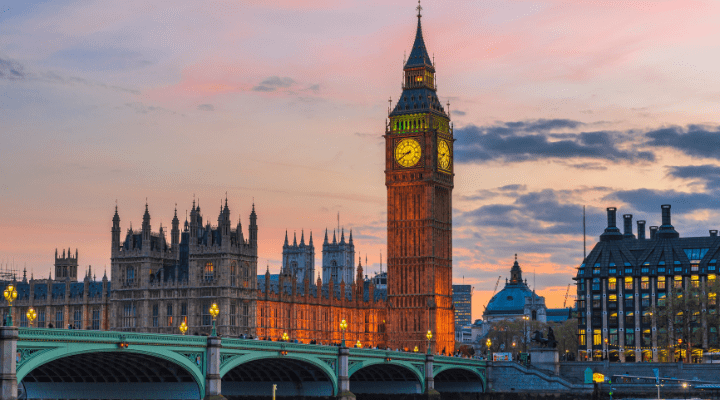some major headaches in store for the next Chancellor – Inside track
5 min read
The spring 2024 budget, probably the last fiscal event before the election, was mostly about the politics, while largely ducking the serious underlying challenges facing the UK. Tackling the UK’s chronic problems of sluggish growth, stagnating productivity, high debt and low investment have all been left for the next chancellor to deal with.
There was some good news: inflation is coming down, unemployment stays low, and incomes are improving faster than expected. The 2p cut in National Insurance, combined with the earlier cut from January, will put about £1,000 more, on average, into workers’ pockets, which may do something to boost growth. There were also some sensible measures for business and the environment, such as the extension of the windfall tax on the oil and gas industries.
But big falls in public investment are baked into the government’s plans for most of the rest of the decade, along with large but, as yet, unspecified cuts to the operational budgets of unprotected departments. Without a sudden return to strong growth, this implies an impossibly tight squeeze on the public finances generally and an environment hostile to raising the level of green investment by as much as is needed.
Accordingly, the views of forecasters such as the IFS and Resolution Foundation, are that most or all the recent tax cuts will need to be reversed in the next parliament to balance the books. Knottier problems, like tackling economic activity in the labour market, which has risen to 9.2 million people, will also continue to mount and will hamper prospects of a return to strong growth. The next government faces an almighty headache.
What the budget gave us in more detail:
Continued stagnation
Shrugging off the technical recession spanning Q3 and Q4 of 2023, the chancellor was able to point to upward revisions to economic growth forecasts that, he claims, give the UK one of the highest levels of headline GDP growth rates in Europe.
However, much of this is due to immigration boosting the size of the population (raising nominal GDP). But a larger population spreads growth across more people, so GDP per person is forecast to grow at barely over one per cent a year over the next parliament.
Securing a rise in real GDP per capita – the only meaningful gauge of prosperity –requires solving the UK’s dismal productivity, stretching back to the financial crisis.
Investment drought
The UK has invested less – both private and public – than other advanced countries over several decades. This is a large part of the reason why productivity and real incomes have stagnated since the financial crisis. It also leaves the UK badly placed to put in the investment needed to build the green economy, which the Climate Change Committee estimates needs to reach £50 billion a year by the end of the decade.
Yet public investment as a proportion of GDP is slated to fall by a third over the next parliament. It will be just 1.7 per cent of GDP in 2028, below the government’s aspiration of 2.5 per cent, and well adrift of the G7 average of three per cent. The government announced various actions to raise private investment, but business investment is set to fall by 5.1 per cent this year and will grow by an average of just 1.7 per cent a year to 2028.
A major cause of low public investment is overly restrictive and anti-investment fiscal rules. We suggest the next government changes the rules to allow for more productive investment in the green economy and to raise the net value of natural capital.
Households still worse off
While the Office for Budget Responsibility (OBR) reiterated that 2022-23 was the worst year for household incomes since records began in the 1950s, it has revised up its forecasts and now thinks incomes will return to their pre-pandemic levels by 2025-26, two years earlier than previously thought. Nevertheless, the current parliament is likely to be the first in living memory in which people will, on average, be worse off at the end than at the start.
Fuel Duty frozen, again
This is the 14th year the government has frozen or cut fuel duty, in a move that is cutting government revenues and causing higher levels of emissions than if it had been raised year on year as planned. In real terms, 2023’s freeze meant fuel duty was 37 per cent lower than the rate planned in 2010, according to the IFS, and this has cost the public purse upwards of £80 billion. What’s more, this is not a progressive policy move. The biggest winners from the fuel duty freeze are the richest in society.
Air passenger duty changes
This was increased for business class and private jets. It’s good news, as flying via business class emits three times as much CO2 per person as flying economy and private jets are up to 40 times more polluting. However, all airlines are still woefully undertaxed, paying absolutely no duty on fuel.
A new tax on vapes
The government will introduce a new duty on vaping products from 1 October 2026. Keeping vapes cheaper than tobacco helps people to choose them to quit smoking. But a price rise through tax will also help deter a new generation from getting hooked on nicotine, as young people are highly sensitive to price increases. An even better announcement would have been to dedicate some of the millions in expected revenue for public information campaigns about the environmental and health impacts of vaping.
Extension of the windfall tax on North Sea fossil fuel extraction
The government announced that the Energy Profits Levy will be extended for an additional year to 2029, raising £1.5 billion. But it could have gone further, and scrapped the investment allowance in the windfall tax, which means the taxpayer is paying for new oil and gas projects to be built, while oil and gas companies continue to make record profits. On the other hand, around £120 million was allocated to the Green Industries Growth Accelerator (GIGA), which is good news.
Up against an unpromising economic backdrop, and with extremely limited fiscal headroom, the chancellor will probably have been pleased to deliver some fragments of good news while slowing the pace of tax rises with a national insurance cut. But this offers only a temporary reprieve from the UK’s economic problems, and the wider reckoning has merely been postponed.





